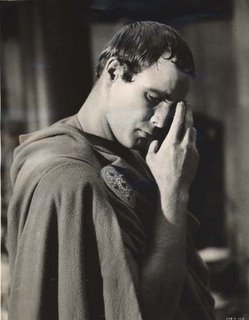(or No more Cakes and Ale)
One summer, not that long ago, I spent a weekend in a remote village in Romania - so remote in fact there was no permanent vehicle access - cars drove up a dry river bed in summer to get to it - in winter, cars didn't.
It was there I learnt about water drinking:
Animals do - humans don't.
Humans drink wine, with breakfast, dinner and tea - even children drink wine - or the very young, milk. Herb tea would sometimes be taken for illness.
It isn't alcoholism - although it can easily spill over to that - and the associated domestic violence was an accepted part of life: It is the only safe way to live in a world where the water is dangerous (and science hasn't penetrated - schools? Boiling water cleans it of disease?).
Elizabethan England was the same.
Small beer (low in alcohol) was the Elizabethan 'water'. Every housewife made it at home, children drank it in school, and clergymen knocked back a pint before giving the Sunday sermon.
Strong ale was a social drink leading to drunkenness (and a reported cause for Shakespeare's death). Wine for the rich; cider in certain parts of the country.
No wonder then that drunkenness and drink is quite a common theme in the plays of Shakespeare.
The Porter in Macbeth is drunk.
He talks about drunkenness – and talks in a most vulgar way (it is also, in the hands of a good comedy actor, exceptionally funny).
Modern western audiences, with their convoluted views on alcohol and alcohol abuse, don’t see what Shakespeare’s audience see. An audience in America might be a lot more ‘puritan’ in outlook than one in England, but missing in both is the fundamental necessity of drinking ‘beer’ - or it’s fermented equivalent – as a preserver of life.
Also missing (although less so in parts of the USA) is the essential Co-Text to Shakespeare, the Bible (and associated Elizabethan Homilies and Sermons).
The first thing that came to me when thinking of the Porter Scene, was the text used by Luther on his First sermon on Advent – Romans, chap. 13 vs. 11 – 14.
The key verse is this:
13. Let vs walke honestly as in the day, not in riotyng & dronkennesse, neither in chaumberyng & wantonnesse, neither in strife and enuying.
Is there a better comment on Macbeth at this point in the play?
Macbeth is working at night, the porter talks about the carousing and drinking, about ‘chaumberyng & wantonnesse’ (lechery) and Macbeth himself, who enters quickly, represents envy and strife (although the porter does talk about fighting drunkeness).
It is worth thinking about Luther’s comments on the quoted verse at this point:
“The six works mentioned suffice to teach that he who lives in the darkness of unbelief does not keep himself pure in his neighbor’s sight, but is immoderate in all his conduct, toward himself and toward his fellow-man.”
When we watch Macbeth and Lady Macbeth ‘doing’ the killing, we get wrapped up in the tension and magnitude of the action: We do not think – oh, should he be doing that?
The Porter’s scene gives us space – not to relax, not to relieve ourselves, but to think.
We have an immoderate commentator – reminding us of the darkness of unbelief: Pointing, in the clearest possible way, the path Macbeth is treading.
Lady Macbeth has used the word drunk a couple of times by this point.
She talks of hope being drunk – and then sleeping off the effects.
More interestingly, she enters (Act 2 ii) and says – ‘That which hath made them drunk, hath made me bold’. She has been drinking – but what reads like simple Dutch courage to us, has the smell of sulfur around it:
Honest men it has incapacitated; the evil made bold.
Other drinkers in Shakespeare include Falstaff. If it is true that Falstaff has his origins in The Vice, then his constant drunkenness and whoring support the notion that an Elizabethan audience would be wary of such activities and, no matter how amusing he seems, see his route to the gallows is clearly marked out – lined with primroses maybe.
And a point worth making here is the audience watching Macbeth’s Porter could well have Falstaff in mind – surely it is the same actor playing the parts?
Which brings on the question – which parts did the Porter double? If it is a witch – his entrance as the Porter would instantly link evils.
What does this say of other drunks and drink scenes?
Iago uses drink to bring the downfall of Cassio – Iago playing another Vice/Morality play figure, Good Fellowship!
In Hamlet and Antony and Cleopatra, there are drink scenes with negative connotations.
In Julius Caesar though, and 12th Night, surely drink is looked on slightly differently? Antony is praised by Caesar for ‘loving drink’.
And Toby Belch’s repost to the Puritan Malvolio, ‘Because thou art virtuous, Shall there be no more cakes and ale?’ surely has a double edge.





